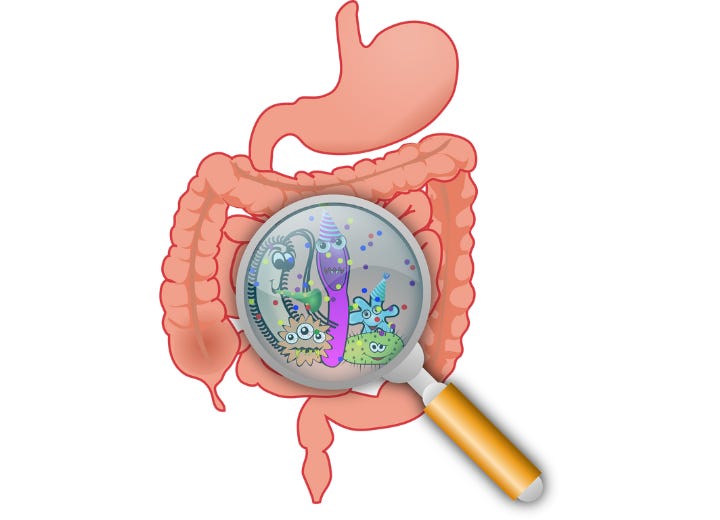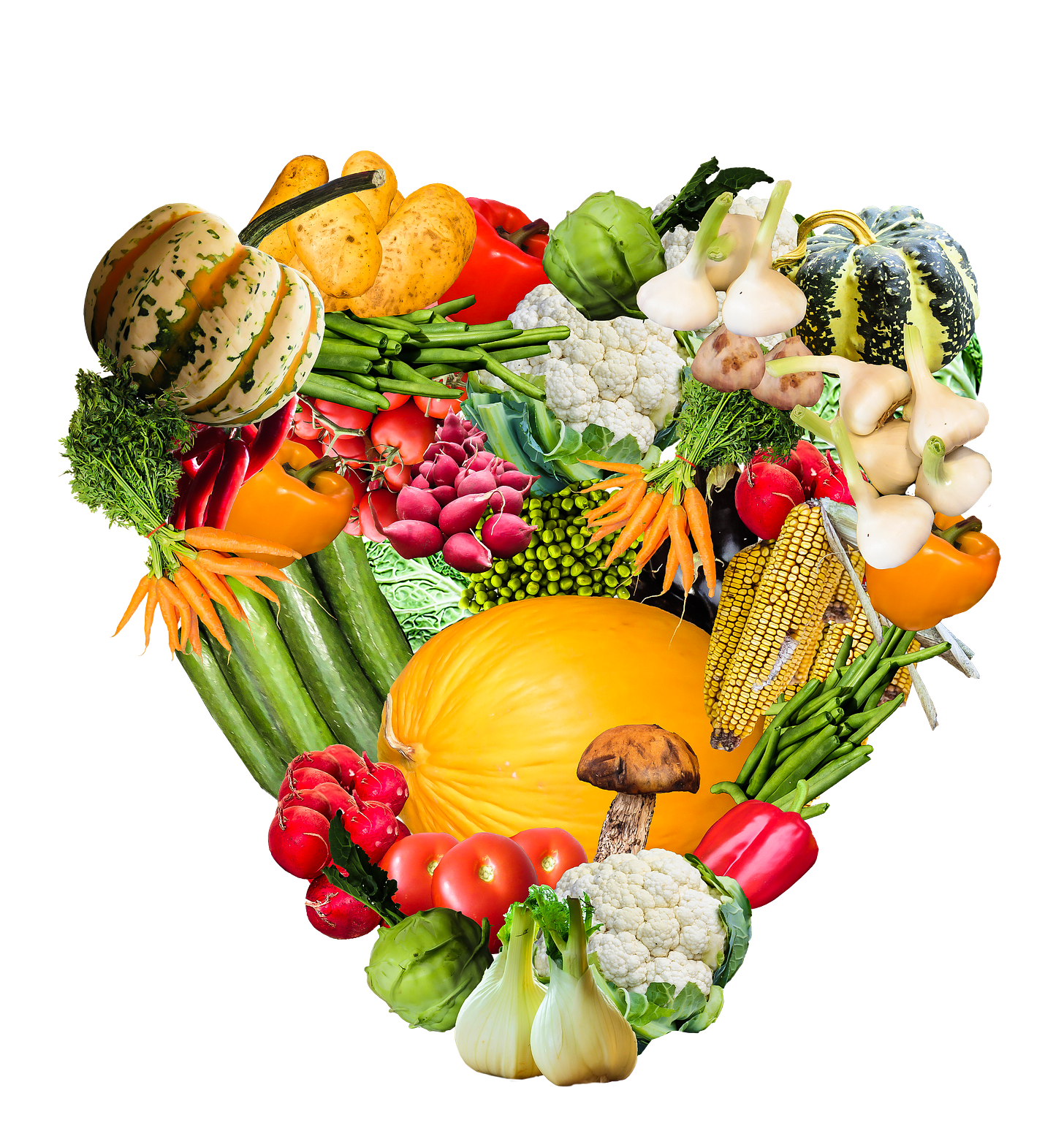’’The new study revealed that while omnivores exhibited greater gut microbial diversity, vegans displayed a higher abundance of beneficial bacteria associated with improved health outcomes, suggesting a potential link between plant-based diets and a healthier gut microbiome.’’
The human gut is home to trillions of microorganisms, collectively known as the gut microbiome. This intricate ecosystem plays a crucial role in our overall health, influencing everything from digestion and immunity to mood and even brain function. Recent research suggests that dietary choices significantly impact the composition and function of the gut microbiome, and a new study has shed light on the potential benefits of a vegan diet for gut health.
The Study: A Glimpse into the Gut Microbiomes of Vegans, Vegetarians, and Omnivores
A large-scale study, involving over 21,000 participants across various countries, compared the gut microbiomes of vegans, vegetarians, and omnivores. Researchers analyzed stool samples to assess the diversity and composition of gut bacteria, while also considering participants' dietary habits using the healthy plant-based diet index (hPDI).
The results revealed some intriguing differences:
Diversity: Omnivores exhibited the highest diversity of gut bacteria, likely due to their varied diets, which include a wider range of food sources.
Beneficial Bacteria: Vegans, despite having lower overall bacterial diversity, showed a higher abundance of beneficial bacteria. These bacteria are known to produce short-chain fatty acids (SCFAs), which have anti-inflammatory properties and support gut barrier function.
Harmful Bacteria: Omnivores, on the other hand, had a higher prevalence of harmful bacteria associated with inflammation, colorectal cancer, and adverse cardiovascular outcomes.
Why Vegans May Have an Edge
The study suggests that a plant-rich diet, particularly a vegan one, can cultivate a more favorable gut microbiome. Here's why:
Fiber Power: Plant-based diets are rich in fiber, which serves as a prebiotic, feeding the beneficial bacteria in the gut. This promotes the growth of SCFA-producing bacteria, such as Bifidobacterium and Lactobacillus.
Reduced Inflammation: The high intake of fruits, vegetables, and whole grains in a vegan diet provides an abundance of antioxidants and anti-inflammatory compounds. These nutrients not only benefit the host but also help to modulate the gut microbiome, reducing inflammation and promoting a healthier environment for beneficial bacteria.
Limited Exposure to Harmful Compounds: The exclusion of meat and dairy from a vegan diet eliminates exposure to certain compounds found in animal products, which can promote the growth of harmful bacteria. For example, red meat has been linked to an increased abundance of Bilophila wadsworthia, a bacterium associated with inflammatory bowel disease.
Beyond the Microbiome: Wider Health Implications
The findings of this study have broader implications for overall health. A healthy gut microbiome has been linked to a reduced risk of various chronic diseases, including:
Cardiovascular disease: SCFAs produced by beneficial gut bacteria play a crucial role in regulating cholesterol levels and reducing the risk of heart disease.
Type 2 diabetes: A healthy gut microbiome can improve insulin sensitivity and blood sugar control.
Autoimmune diseases: The gut microbiome plays a vital role in immune function. A balanced microbiome can help to regulate the immune system and reduce the risk of autoimmune disorders.
Mental health: Emerging research suggests a strong connection between the gut microbiome and mental health. The gut-brain axis allows for communication between the gut and the brain, and imbalances in the gut microbiome may contribute to conditions like anxiety and depression.
Important Considerations
It's important to note that this study provides valuable insights, but further research is needed to fully understand the complex interplay between diet, the gut microbiome, and human health. Additionally, individual responses to dietary changes can vary significantly.
Beyond Veganism: The Power of Plant-Based Eating
While the study focused on vegans, the findings highlight the broader benefits of a plant-rich diet for gut health. Incorporating more plant-based foods into your diet, regardless of whether you're vegetarian or vegan, can have a positive impact on your gut microbiome.
Tips for Improving Your Gut Health:
Increase fiber intake: Focus on whole grains, fruits, vegetables, and legumes.
Fermented foods: Include fermented foods like yogurt, kefir, sauerkraut, and kimchi in your diet. These foods contain probiotics, which are live bacteria that can benefit gut health.
Limit processed foods: Processed foods are often high in sugar, unhealthy fats, and artificial additives, which can disrupt the gut microbiome.
Stay hydrated: Drink plenty of water throughout the day.
Manage stress: Chronic stress can negatively impact the gut microbiome. Practice stress-reducing techniques such as yoga, meditation, or deep breathing exercises.
By making conscious dietary choices and adopting healthy lifestyle habits, you can nurture a thriving gut microbiome and reap the rewards of improved overall health.
Disclaimer: This article is for informational purposes only and should not be considered medical advice. Consult with a healthcare professional or registered dietitian for personalized guidance on dietary changes and gut health.
Source: Gut microbiome signatures of vegan, vegetarian and omnivore diets
Get my new booklet ‘‘25 Vegan Myths Debunked!’’
This concise guide is invaluable for anyone curious about veganism, offering evidence-based insights and practical guidance to navigate vegan living confidently. All proceeds benefit the promotion of animal rights worldwide!
Please visit My Amazon Store!
Notice: As an Amazon Associate, I earn a commission from qualifying purchases that help promote animal rights worldwide!
Visit The Vegan Project Global Facebook page for more vegan outreach and education.
The information on this vegan/plant-based blog is for general informational purposes only. It is not intended as legal, medical, or professional advice. Readers should consult with appropriate professionals for specific advice tailored to their situation. The blog owner is not responsible for any reliance on the information herein.






